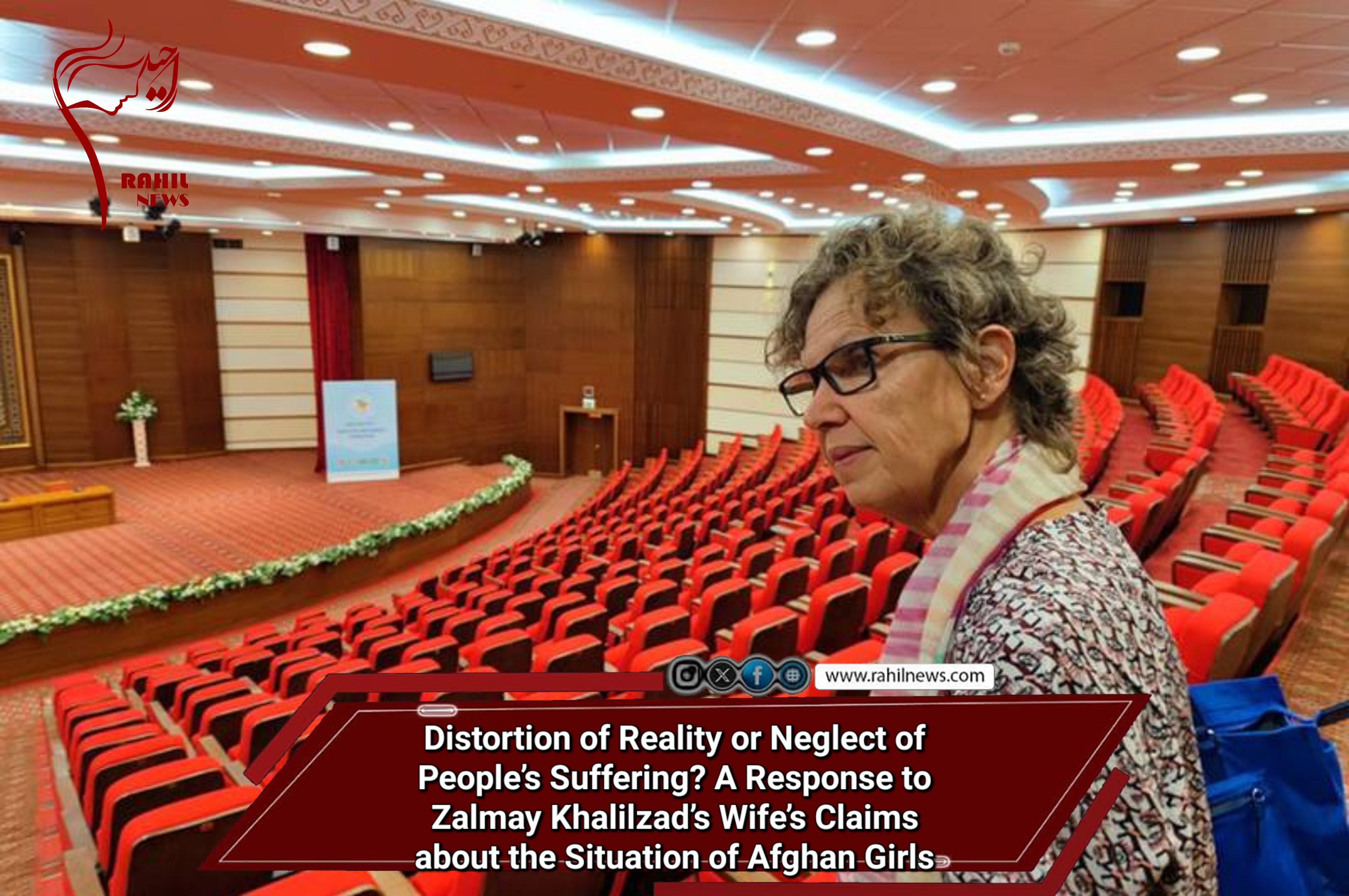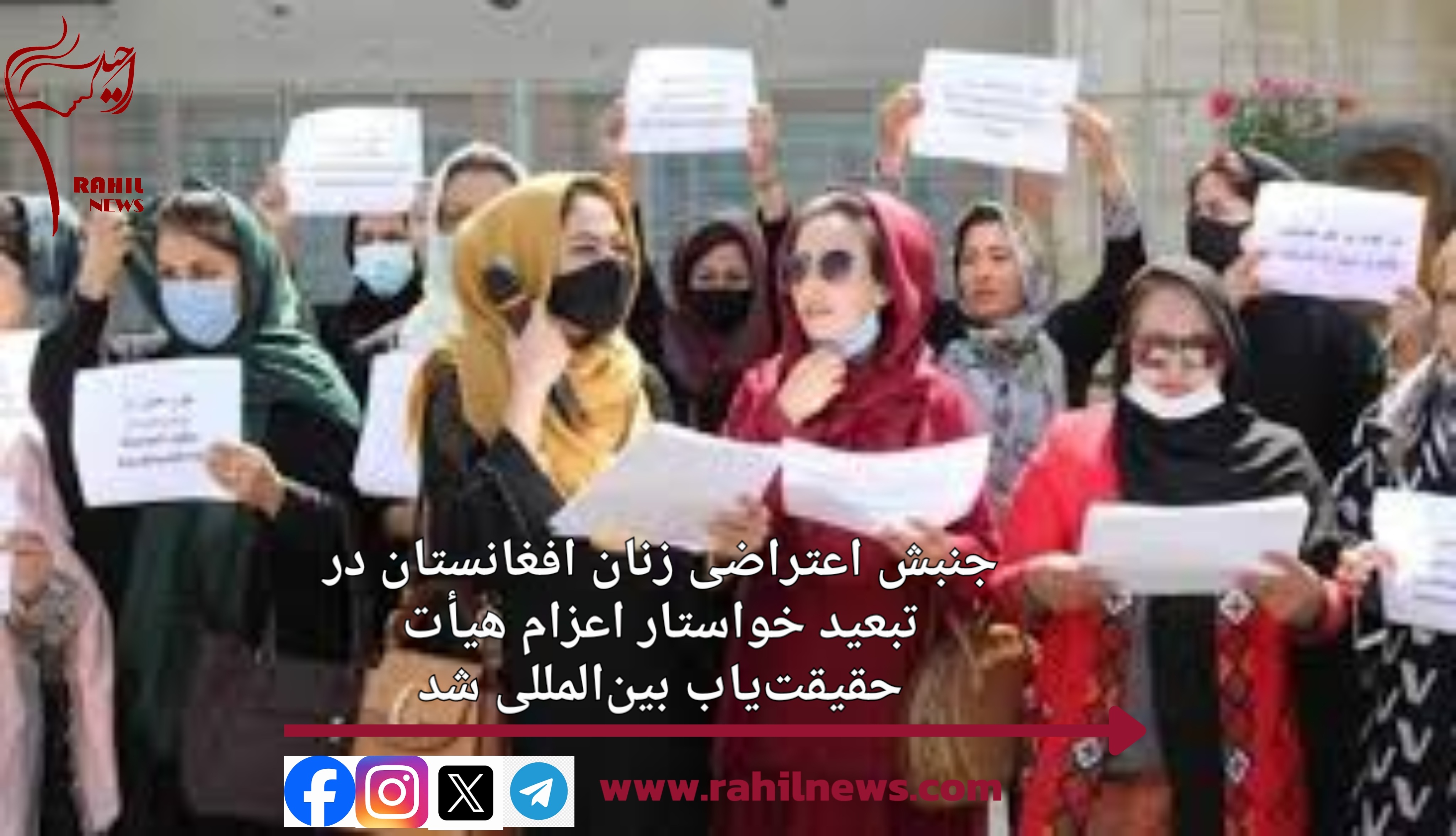
شریک سازید:
Author: Rahilnews Site Manager (Pen Name)
While millions of Afghan girls are deprived of their basic right to education, a recent article by Ms. Cheryl Bernard, wife of Zalmay Khalilzad, former U.S. special envoy for Afghanistan, published on the “National Interest” website, presents claims that are far removed from the harsh realities in Afghanistan today.
Ms. Bernard asserts that only public schools are closed to girls, while private schools can operate at all levels. This claim is not only inaccurate but also a simplistic and misleading attempt to conceal the systematic exclusion of girls from education by the Taliban. Numerous reports, including UNICEF and UNESCO documents, confirm that over 1.4 million girls in Afghanistan are barred from attending school. This ban affects not only public but also private schools. Many private educational institutions have either closed or stopped admitting girls due to Taliban pressure.
Ms. Bernard also describes women supposedly working freely in markets and restaurants. While such cases may exist, they represent a limited and exceptional picture compared to the tens of thousands of women expelled from government jobs, media, schools, civil society, and international organizations. The reality is that the Taliban have officially issued orders excluding women from most social, professional, and educational spheres.
Simultaneously, Rahilnews has received reports of mass dismissals of female teachers from Kabul’s schools and kindergartens, expulsion of female university professors, and threats against female educators in provinces. Women who have spent years educating the future generation are now confined to their homes, deprived of salaries, healthcare, and independent livelihoods.
Ms. Bernard’s claim that the Taliban seek international recognition and that the country’s security situation is “stable” is another form of deflection. While active warfare may have declined, the growing atmosphere of fear, repression, censorship, and arrests of journalists, activists, and protesters cannot be called “stability.”
Over the past three years, dozens of Taliban decrees have practically confined women’s lives to within four walls. Mandatory dress codes, travel restrictions without a male guardian, closure of secondary and high schools, prohibition of women working in foreign offices, shutdown of women-focused media outlets, and thousands of other obstacles comprise what Ms. Bernard labels as a “distorted feminist narrative.”
While the article’s author strolls freely and safely through Kabul’s restaurants, millions of Afghan women live in hiding, fear, and silent anguish—women who no longer see school or university classes even in their dreams.
As an independent media outlet, we witness the gradual collapse of education and opportunities for women in Afghanistan. Efforts to whitewash the Taliban and normalize their restrictions only prolong the suffering and oppression of Afghan women.
Out of respect for truth and for a generation that must not be forgotten, we raise our voices in protest.
Note: Due to security threats, the site manager’s name is a pseudonym.


